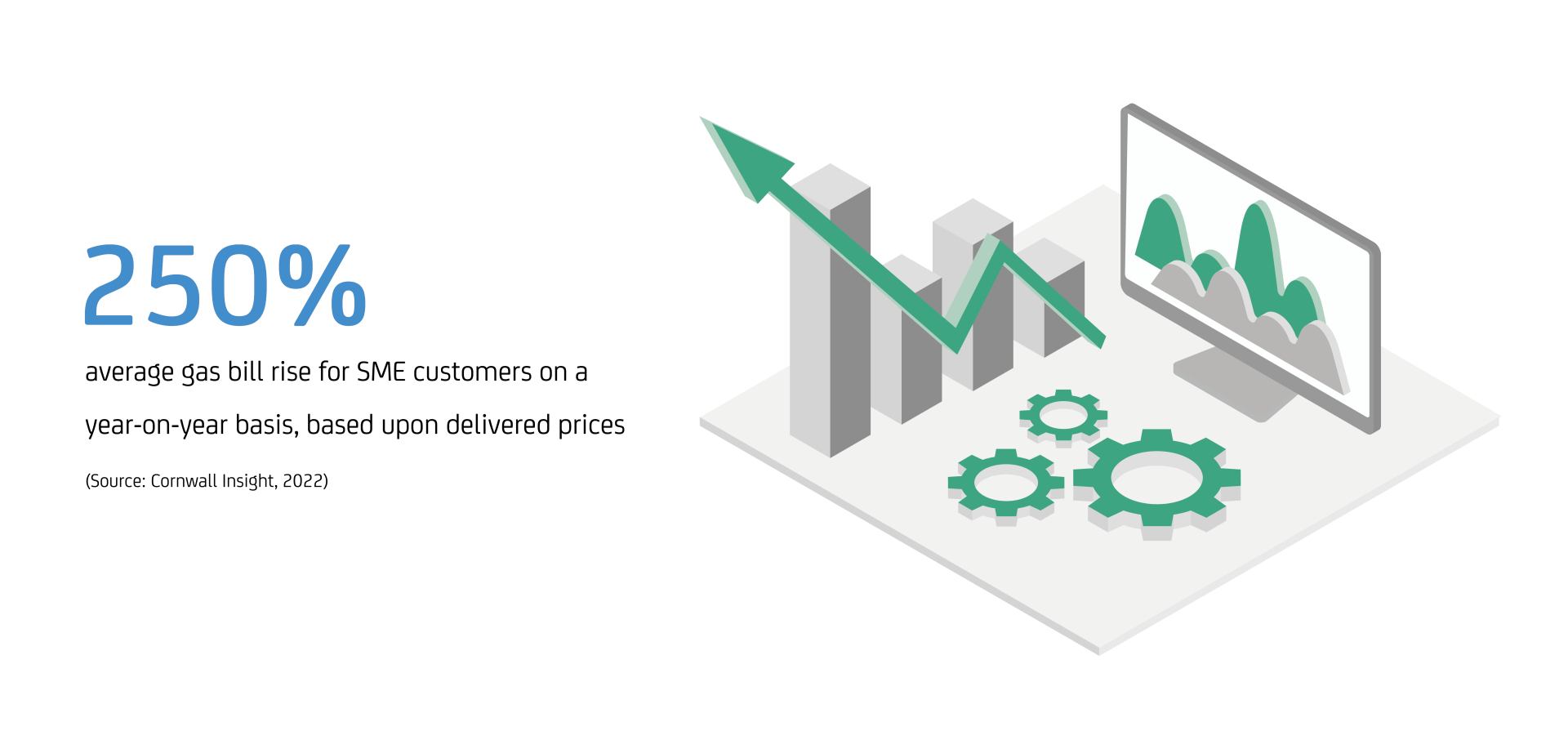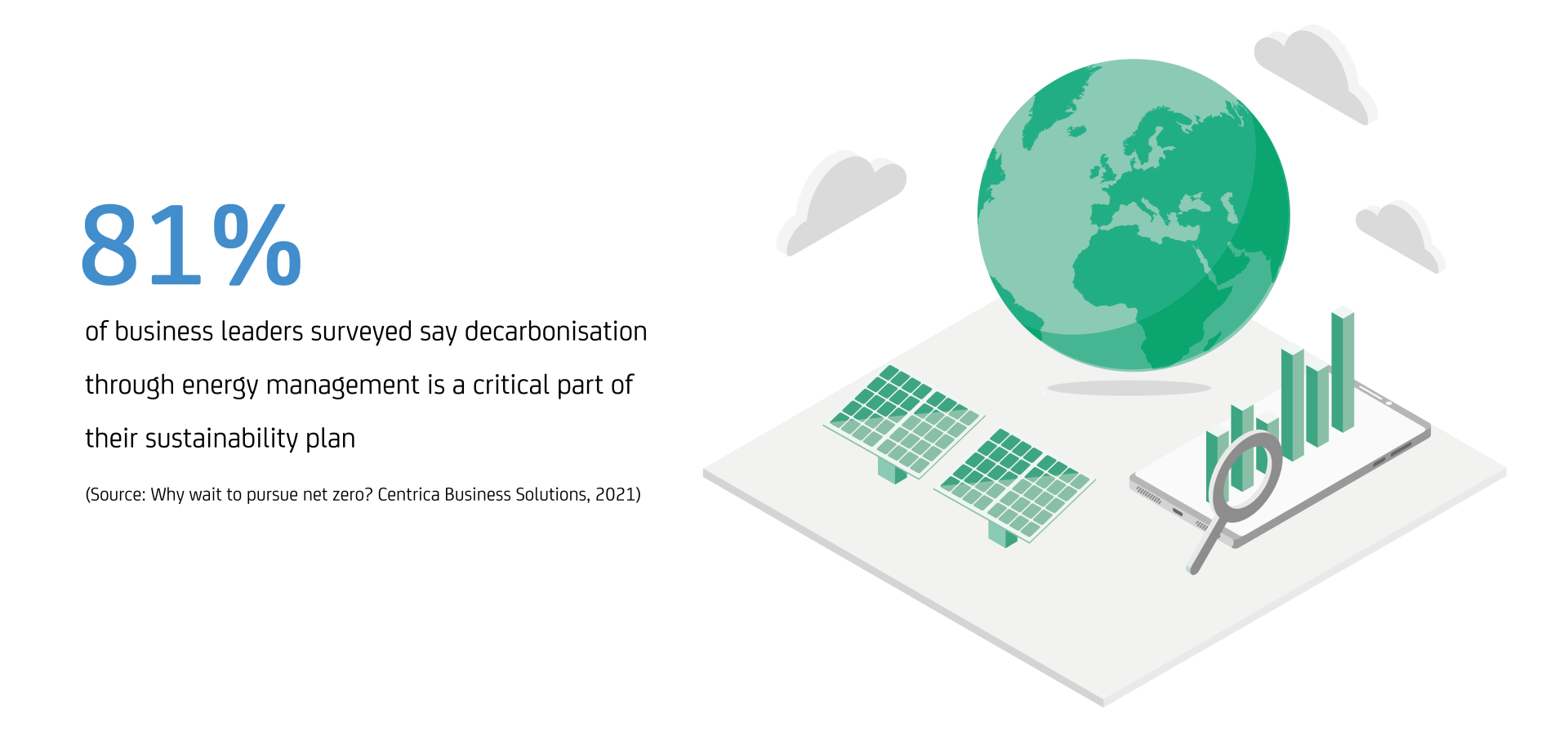Amidst rising energy costs, digitalisation, growing pressure from stakeholders and increasing regulation, organisations may struggle to define their pathway to a low-carbon future. What can you do to protect your business’ net zero plans from the challenges of volatility?
Disruption and volatility are putting organisations under pressure. Digitalisation and new technology developments continue to challenge existing business models. Its increasing dependence on energy and encouraging businesses to drive change to secure competitive advantage. And as customers, employees and shareholders look to engage with companies who understand the importance of decarbonisation, pressure is mounting to prioritise sustainability.

Against this backdrop, many organisations may struggle to define how to achieve their net zero ambitions. A lack of clarity on where to decarbonise, limited understanding of their energy usage, or financial constraints can all make it difficult to know how to balance the demands of planet and profit. But companies that fail to progress their goals may face growing pressure from stakeholders and erosion of their brand’s value.
The most successful, sustainable organisations search for a balance between economic and environmental responsibility. They know that they cannot focus exclusively on rising energy costs without also considering their environmental impact – and they know that prioritising environmental concerns over financial performance would leave them without a viable business model.
Balance is key
But it’s possible to find this balance, and volatility can create opportunity. High commodity prices don’t have to be a hurdle on the net zero journey. Instead, this widespread volatility could be the starting point to future-proofing your energy estate.

Disruption can provide the motivation to explore solutions that can build resilience and improve efficiency and sustainability at the same time. You don’t have to be set back by volatility – with integrated energy solutions, you can bounce forwards instead.
List of Services
-
Drive energy efficiency through dataList Item 1
Monitoring your energy usage can equip you with the information you need to streamline your operations, pinpoint waste and inform your decision-making.
-
Step - Fixed prices today, guaranteeing price assuranceList Item 2
Step is our new fixed supply contract with two fixed pricing periods and no hidden costs, you’ll benefit from price certainty with full budget control and peace of mind for the length of your contract – up to 3 years. Guaranteeing you price assurance.
-
Become a sustainable businessList Item 3
We’re Zero Carbon as standard. All our electricity is backed by guarantees of origin certificates and nuclear generation**. We also offer renewable upgrade options and our 100% renewable electricity products are independently certified by the Carbon Trust.
Build your response to volatility
As one of the UK’s leading energy suppliers, we’re committed to helping businesses move closer to a net zero future. Read our report to learn how you can take action now and bounce back from volatility.
*Step is for any existing customer, or any new business customer, with a total business energy consumption of 150,000 kwh or more. A single fixed contract, with two fixed price point/dates within it. For contract start dates in 2022, the first fixed period will be for the remaining months in 2022 and up to 31st March 2023. The second period will be a weighted average price up to a total contract term of 36 months. For the second period, we guarantee a lower fixed price.
**Every unit of electricity used will be supplied by British Gas matched to a mix of renewable certificates and nuclear energy to ensure that your business electricity supply is zero carbon for the term of your contract. We will hold the necessary number of renewable guarantees of origin certificates and nuclear generator declarations as evidence of this zero carbon emissions fuel mix. If there is a change to any law, regulation, decision, guidance or advice by a regulatory authority and/or material change to the availability of the renewable certificates or nuclear declarations which means we can no longer guarantee a zero carbon supply, we will write and let you know, simply visit https://www.britishgas.co.uk/business/sustainable-energy
